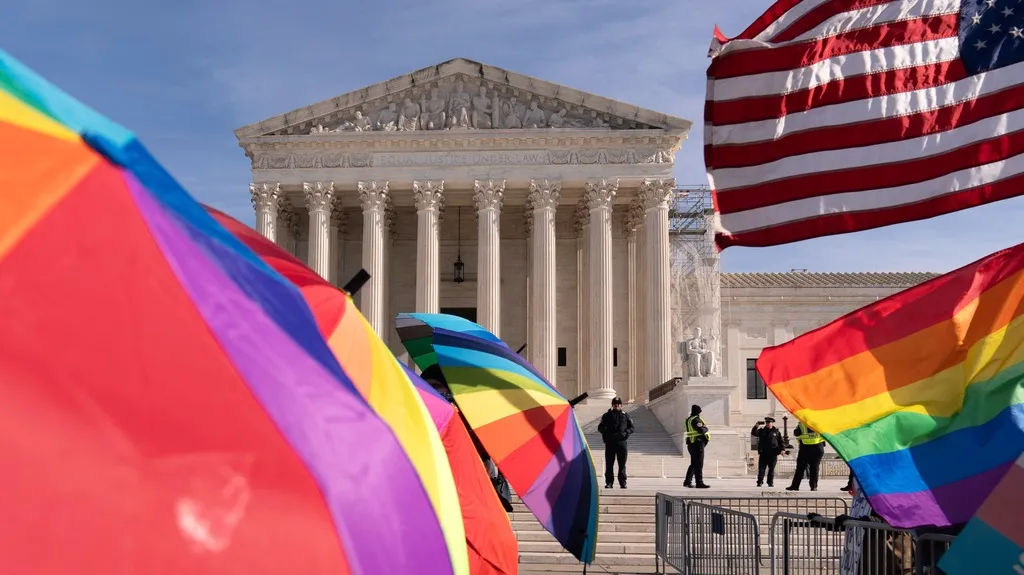October 24, 2015
San Francisco Mayor 'Open' to Allowing Gay Bathhouses
Matthew S. Bajko READ TIME: 7 MIN.
San Francisco Mayor Ed Lee is "open" to allowing gay bathhouses to once again operate in the city as long as public health officials believe doing so would not hinder their plan to eliminate by 2020 nearly all new HIV infections.
Asked about ending the city's rule that bans private rooms with locked doors in bathhouses during a recent editorial board meeting with the Bay Area Reporter, Lee said he is not opposed to lifting the ban as long as it would not hinder the city's Getting to Zero initiative, which calls for reducing new HIV infections by 90 percent over the next five years.
"The issue about bathhouses and so forth that is an item that blends entertainment along with safe sex, and I have got to have experts telling me that is something they wouldn't have a problem with," said Lee. "I would be open to it but I have got to have that kind of process."
Yet the city's Department of Public Health told the B.A.R. this week it has not changed its position regarding city rules governing the permitting of bathhouses. The city's police code bans "any cubicle, room, or booth, or in any area within a public bath house by whatever designation whatsoever which is fixed with a door capable of being locked."
For most gay men, private rooms with locked doors signals whether an establishment is a bathhouse or a sex club. As for the health department and other city departments when it comes to the permit process, a bathhouse is defined as "a business where customers pay for communal sauna, steam, or numerous other types of baths."
In 2013 Health Director Barbara Garcia , a lesbian, assigned staff to look at the issue of allowing traditional gay bathhouses to again operate in the city. Once they reported back to Garcia with their findings, the health department "should have something substantive to say. We know this is an issue of concern to many members of the community," its spokeswoman at the time told the B.A.R.
This week, in response to the B.A.R. 's request to interview Garcia about what the staff findings were, health department spokeswoman Linda Acosta replied by email that, "There is no update on this issue and therefore the health department cannot provide an interview at this time."
The ongoing debate over re-opening gay bathhouses in San Francisco has received renewed attention this year due to a lecture about the history behind their closures that Buzz Bense has given, most recently in August at a standing-room-only talk sponsored by the GLBT Historical Society and held at its GLBT History Museum in the Castro.
Bense is a former co-owner of sex club Eros, which continues to operate under new ownership in an upper Market Street building. Because it includes sauna facilities, Eros was required to apply for a bathhouse permit two years ago. It does not provide locked rooms and its owners have said they do not plan to do so.
In October 1984, amid an often vitriolic debate within the city's LGBT community about whether the gay bathhouses and sex clubs should be shuttered as a way to stop the spread of AIDS, a San Francisco Superior Court judge issued a temporary restraining order that shuttered nine gay bathhouses and sex clubs.
In late November of that year another judge lifted the restraining order but imposed new rules on how the bathhouses and sex clubs could operate. No longer could they rent private rooms, unless they secured a hotel license, and employees had to monitor the sexual behavior of patrons.
Bathhouse owners, however, refused to open their doors as the court heard challenges to the new rules. The judge hearing the court case toughened his order and banned any sex from occurring in the bathhouses.
"There was never legislation in City Hall. There was never regulation from the health department," noted Bense in his talk. "These closures happened because a judge made a decision influenced by politics and the media."
Although the judge's ruling served as a death notice for the city's bathhouses, over the ensuing years sex clubs opened their doors. Several, like Eros and Blow Buddies, remain in business. By the 1990s the city's health officials saw the sex clubs as avenues to reach gay men and educate them about safe sex practices.
But they remained resolute in their opposition to allowing gay bathhouses to open with private rooms. Also adamant in her opposition to changing the city's bathhouse rules has been U.S. Senator Dianne Feinstein (D-California), who as mayor in the 1980s backed the drive to shutter them as part of her administration's response to the AIDS epidemic.
Asked by the B.A.R. in 2012 if she would oppose the reopening of the bathhouses, Feinstein replied, "That is right."
Yet the city's HIV epidemic, in effect, ended in 2007 as new infections began to decline and HIV was deemed to be an endemic disease. Last year new HIV diagnoses in San Francisco fell to 302, the lowest number since the start of the epidemic more than three decades ago.
The continued decline in new infections, as the B.A.R. has previously reported, is widely credited to a combination of factors, including widespread testing, early antiretroviral treatment, and possibly early signs of the impact of pre-exposure prophylaxis, or PrEP, the once-a-day-pill found to be effective in preventing sexually active people from contracting HIV.
Supporters of allowing gay bathhouses to operate in San Francisco argue doing so would not reverse the city's latest HIV prevention successes. Instead, they contend it would bolster health officials' ability to reach sexually active men who have sex with men to educate them about PrEP use and the need to get tested for HIV as well as sexually transmitted diseases that are on the rise among city residents.
But when asked about the possibility of seeing gay bathhouses reopen under Lee's administration, Bense replied "Oh, never" in a brief interview with the B.A.R. following his talk in August.
"I don't think Barbara Garcia would get on board," he said. "This isn't about health science. It is about politics."
Even if the city were to relent and allow gay bathhouses to operate, Bense doubted operators would find it financially feasible in today's super heated real estate market.
"Where the fuck can you buy a big building for less than a gillion dollars to open a bathhouse?" asked Bense.
Race Bannon, a longtime HIV activist and writer in San Francisco who pens the B.A.R.'s leather column, said interest in bathhouses differs by age, based on the responses he has received when he raises the issue.
"I think for gay men of a certain age they, most of them I think, would like to see them reopen because they remember them clearly, and younger men, many of whom have grown up without ever being in a San Francisco Bay Area culture of bathhouses, simply don't have a point of reference so they are less interested," said Bannon, who in 2000 was part of an effort to get the city to reopen the bathhouses.
He agreed with Bense's contention that, "We have a politically driven argument around bathhouses that has nothing to do with science." The city, Bannon added, "has to change its policy to be in line with good public health science and what is best for the gay male community. And that is allowing the opening of bathhouses should a bathhouse decide to open."
Gay District 8 Supervisor Scott Wiener , who two years ago told the B.A.R. that the city's ban of private rooms in bathhouses "doesn't have a basis in public health and is arbitrary," said in a recent interview that people interested in opening a gay bathhouse had approached him in the past about doing so.
"I don't know what the status is on any of those potential projects," said Wiener, who declined to disclose the people's identity since it had been "awhile" since he spoke with them. "Also, there is a little ambiguity there. Some people think you can do it under the current rules. It is one of those murky areas with a lot of urban legends floating around what the rules are."
According to a two-page document regarding the city's bathhouse rules that the health department released in 2013, the city "does not equate the term bathhouse with a commercial sex venue." Sex clubs, defined as "a business or location which provides facilities for its patrons or members to engage in sexual contact while on the premises," need to obtain a business permit from the city treasurer's office.
Commercial sex venues are required to abide by minimum standards established in 1990 by the Coalition for Healthy Sex, which was comprised of community members, public health educators, and business operators. The rules, which also cover sex parties conducted in commercial locations, require monitoring to prevent unsafe sex from occurring with the goal being to prevent HIV transmission and the spread of other STDs.
"In essence, the rules developed by the Coalition for Healthy Sex, and codified and implemented by the SFDPH, are the same rules that would have been developed to comply with the court ruling (on bathhouses)," states the health department in its bathhouse Q&A document. "If any bathhouse were to reopen today, that also wanted to operate as a commercial sex venue, they would be subject to these same regulations that are now governing sex clubs and parties."
The city's goal in terms of the rules governing bathhouses, contended Lee, is not to keep such establishments from opening but to reduce new HIV infections.
"If they feel there is a blockage, it is probably because public health is so concentrated in getting to zero with me," said Lee.






